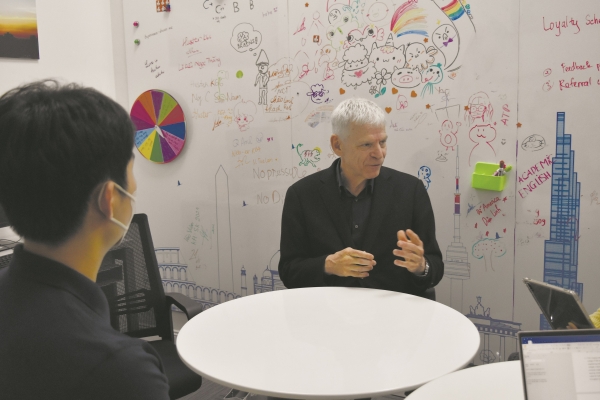
Tell us about your background and your main focus in research.
I was a mathematics student during my undergraduate studies and then I went for my Ph.D to Stanford’s aerospace engineering. The specific research area I focus on can be broadly categorized as optimization which is a mathematical way to model a problem from the world where you have to make a decision or prediction.
Mathematics is a field that can be applied to lots of real-life problems. I felt math was an opportunity for me to go into any field after my undergrad which is the reason why I choose to study it. I imagine you are hearing a lot about AI and chatGPT in the news today. What you hear in the media, however, is a very small portion of a much bigger picture of what it takes to make a system like chatGPT. The rest of the picture can be learned by studying math.
How is the US college system different from the Asian ones?
I have been an ex-pat since I was a kid. My nationality is French, but I was born in Vietnam and have moved around from country to country since then. From my multicultural experience, what strikes me the most is the sheer difference in the social atmosphere toward education in different countries. In the US, for example, university systems put an almost paradoxical emphasis on fostering students’ well-being in a very forgiving atmosphere. The professors should never discourage an underperforming student; they should rather give the student a pat on the back and help them improve. This is contrary to how education is perceived in Asian systems where things are less forgiving, and more pressure is put on the student’s shoulder. What might end up happening is an Asian student studying abroad in the US might think ‘things are so much easier and welcoming here.’ The only problem is that the US lenient system sometimes does a poor job of preparing students for the harsh reality that awaits them after graduation. In this sense, the harsh and high-pressure atmosphere of the Asian system might do a better job of fostering stronger students fit for a competitive job market.
What advice would you give to students looking to go into the field of AI?
My advice for students who wish to go into AI is not to go into AI. Let me explain. The question you should be asking at this point of AI development is not ‘how can you improve AI systems’ but ‘how can AI be applied into a specific context to improve our lives.’ Learning about how to apply AI is a good skill, perhaps a mandatory skill for a 21st-century engineer. Becoming an AI researcher on the other hand is a completely different story. Because everybody nowadays talks about AI and wants to become an AI researcher, it is difficult for you to make an impact anymore. There are many thousands of those researchers now, and if you decide to become one, you are going to be just one among many. So, what you should do is first become a chemist for example, and then learn about AI to implement it into your workflow. That is where the real problem is looking forward. And that is where you will discover problems that are what I call integrated AI problems. Do not do computer science just for computer science. Do computer science for chemistry, physics, business, humanities, and other fields. Push those boundaries.
Any last words for our readers?
Considering coming to Vin University. We tackle many interesting problems and have a lot of collaboration with renowed institutions such as UC Berkley, Stanford, UIUC and EPFL in Europe.


